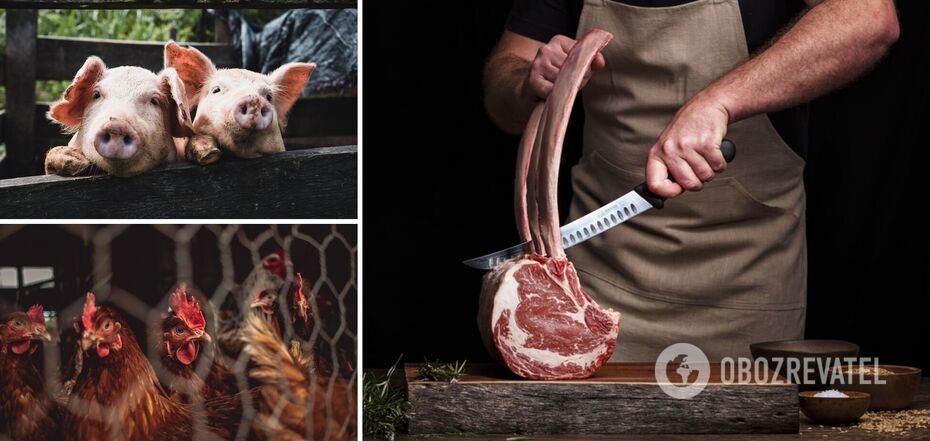News
What would happen if people gave up meat: scientists' answer is shocking
Eliminating all livestock production over the next 15 years could reduce annual greenhouse gas emissions by 68%. According to scientists, eliminating mass production of meat should be as high a priority as eliminating the use of fossil fuels.
This is evidenced by the results of a joint study by Michael Eisen, professor of molecular and cell biology at the University of California, Berkeley, and Patrick Brown, professor emeritus of biochemistry at Stanford University and CEO of Impossible Foods Inc.
According to the scientists, abandoning livestock production would return 30% of its vegetation to the Earth. Eisen and Brown suggested that humanity should quickly restructure its diet.
During their research, the scientists found that increasing forest, pasture, and soil biomass would have an impact on global warming, as would reducing annual global CO2 emissions.
"Ending livestock production has the unique potential to significantly reduce atmospheric levels of all three major greenhouse gases, which is necessary to avert climate catastrophe," Eisen, who is also a researcher at the Howard Hughes Medical Institute (HHMI) at the University of California, Berkeley, said.
"Eliminating animal agriculture will have a faster and larger impact over the next 20 to 50 years, which is a critical window to avert climate catastrophe," Brown said, comparing his idea to other ways to reduce greenhouse gas emissions.
It is known that both scientists do not eat meat. In particular, Eisen became a vegetarian after convincing himself of the detrimental impact of animal agriculture on the global climate. Brown founded Impossible Foods in 2011 for the same reasons, started selling the Impossible Burger in 2016, and recently launched plant-based "chicken" nuggets and similar "pork" products.
"In fact, I've been saying for years that replacing livestock in the global food system would turn back the climate change clock," Brown said.
He noted that most recent research on the climate impacts of livestock has focused on the effects of methane emissions from the animals themselves and their manure, but in the past year, two reports have addressed another aspect of livestock: the potential of pastures to regenerate vegetation and remove carbon from the atmosphere.
While livestock production currently accounts for about 16% of annual greenhouse gas emissions, some estimates suggest that about one-third of all the carbon dioxide humans have released into the atmosphere since the dawn of livestock production is the result of clearing land for livestock, grazing, and growing feed for them.
The scientists emphasized that it is not only about cattle but also about all animals and birds that are raised for food.
"A 15-year phase-out of meat is not unrealistic as a lot can be accomplished during this time," Eisen said.
The experts noted that although animal products play a key role in the diet in most countries, they provide only about 18% of calories.
Based on his experience with Impossible Foods, Brown said, "There is strong evidence that animal agriculture can be replaced without requiring meat lovers to compromise."
Both scientists hope that their research will push policymakers to consider reducing or eliminating livestock production - barely mentioned in the latest IPCC (Intergovernmental Panel on Climate Change) report - as an important option for reducing greenhouse gas emissions.
"I hope that others, including entrepreneurs, scientists, and global policymakers, will recognize that this is the chance that humanity has to change the trajectory of climate change," Brown said.
Earlier, scientists found that zeolite cat litter can effectively capture methane, the third most important greenhouse gas in the Earth's atmosphere, which will help prevent further global warming.





























